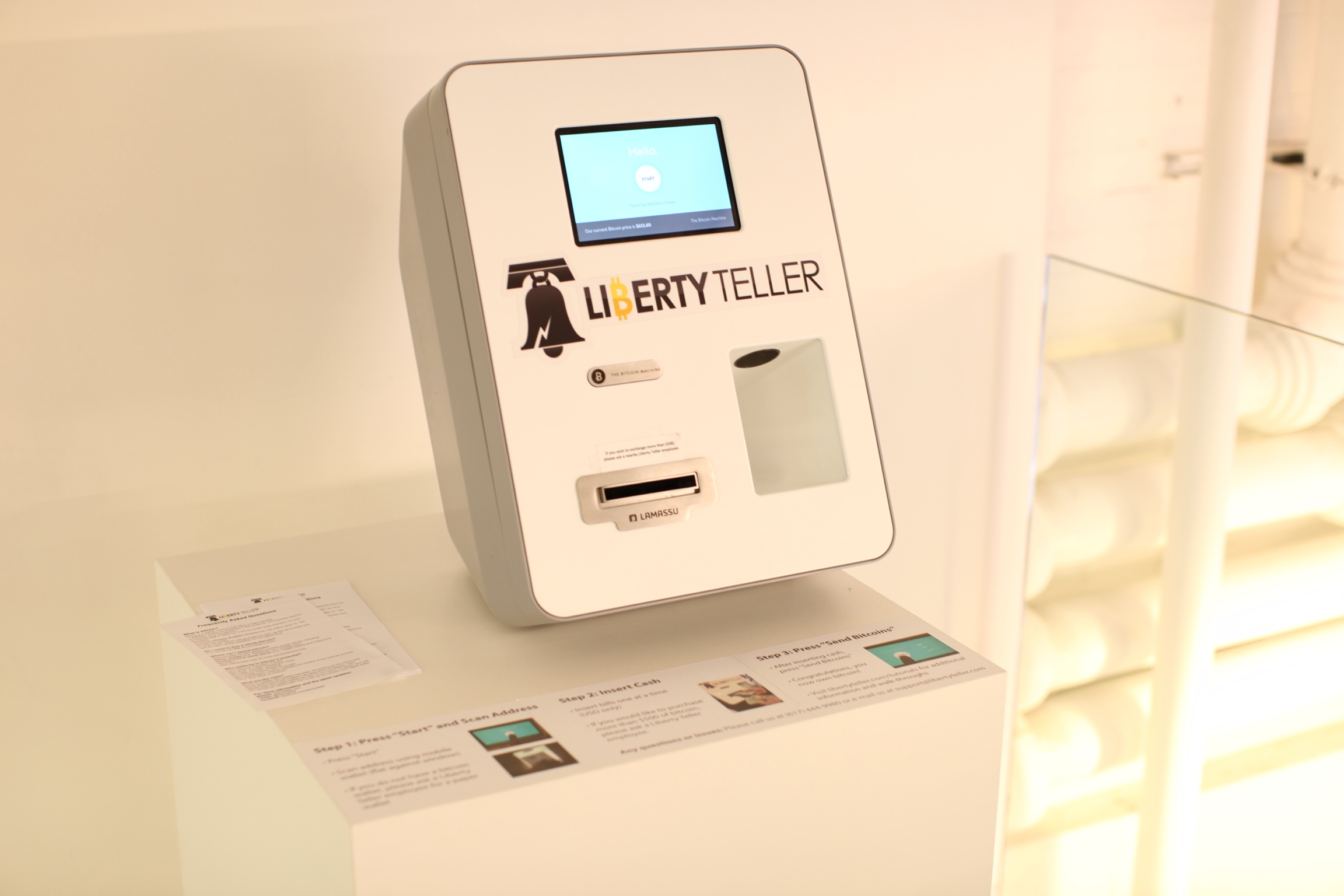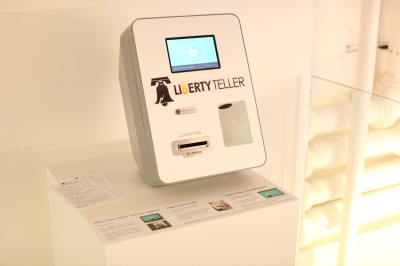That’s a bitcoin kiosk at Clover HSQ.
I was approached by Chris and Kyle. Chris is a former MIT student and the two of them are building a new business called Liberty Teller. Liberty Teller is deploying “Bitcoin ATMS.” They asked is we could pilot the ATM at one of the Clover restaurants. I thought why not. They are paying us $220/ month, which is slightly less than we pay Harvard for that space.
What is Bitcoin? Bitcoin is a “virtual” currency. Some programmers figured out how to create a platform that would allow people to hold and trade a “currency” called Bitcoin. The idea is that this virtual currency would allow for less friction in transactions. In this case friction mostly means banks. It’s an interesting idea and it harkens back to pre-1792, when the US Mint was first created. Back then, and for years after, money was decentralized. There have been minor experiments in local and alternative currencies over the years, but nothing as large as Bitcoin. This is an interesting time, and a lot of people, including me, are curious to see what happens.
How does it work? You put cash into the ATM, Bitcoin is then transferred to your “wallet” which is something you’ve already set up online or, if you’re not already a bitcoin person, a piece of paper you pick up at the machine. You then own these “bits of coin” that you can transfer or sell in the future. We’re working to figure out how to accept bitcoin at Clover. It’s not as easy as I was hoping, but I think we’ll work it out. Right now I don’t know of any retailer in Boston that accepts bitcoin. So locally you can’t do much with your bit. But there are online services and exchanges that let you trade with others.
You cannot use the ATM to get cash. Basically when you use the ATM you are buying Bitcoin that Kyle and Erik already own at a price that they set. They are getting your cash. You are getting their bitcoin.
Why would you want to use this? I can only speculate on what folks are using this for. I used $5 to buy bitcoin for Lucia (Dir of Communications) because we were curious. I don’t know what, if anything, she’ll ever do with that coin. Others have made very large (greater than $500) purchases. It’s occurred to me that this would be a great way to launder money. White collar money laundering, right? I’m not saying I know that anybody is doing that, but it would work really well. You deposit cash. And you have a transferrable and untraceable asset. Crazy, right? Legal yet untraceable. You can imagine tax evasion, purchasing illegal goods, etc. White collar of course. But you know what, cash can be used for all of those things too, right?
The IRS just issued guidance yesterday on bitcoin. It is being treated not as currency, but as a speculative asset. This means that you owe the IRS on any gains you achieve if you sell bitcoin for more than you paid for it, just like a stock. It’s subject to capital gains.



